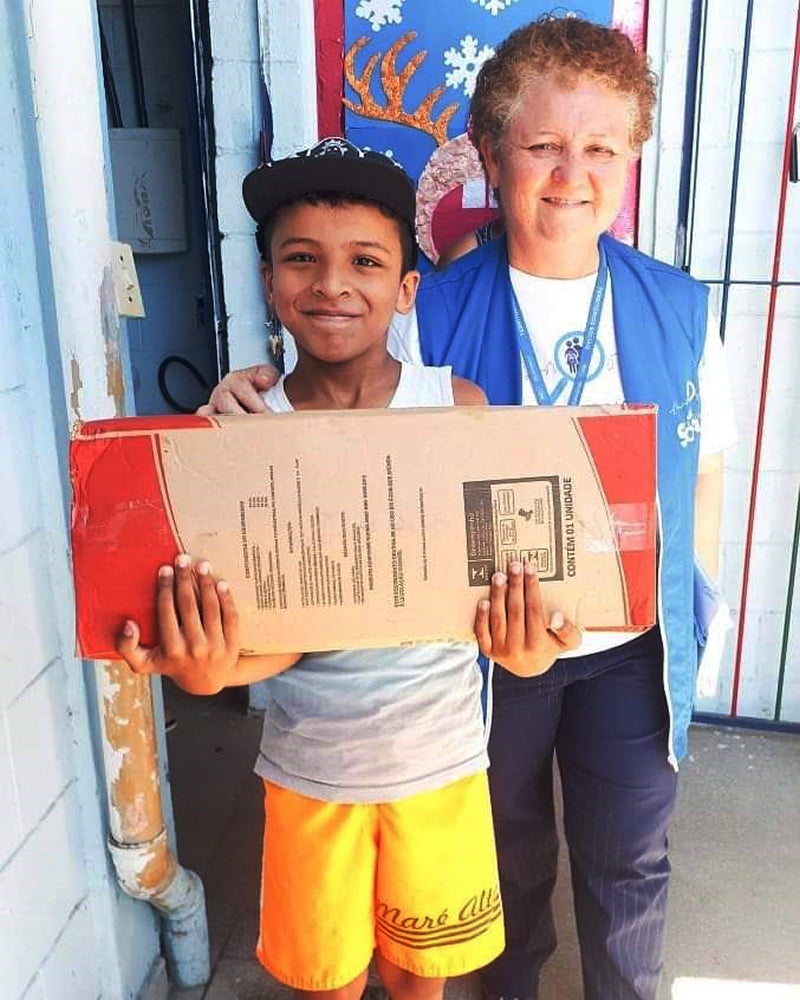Cidade de Deus, Brazil 24 May 2021-- Maria do Socorro is a living institution in Cidade de Deus (City of God) – Brazilian informal settlement internationally known thanks to the film named after it. As she walks through the streets of the community, Maria waves back to the excited faces that smile and shout for her name. The “fame” comes from her long trajectory living and, mainly, conducting social work in the neighbourhood. She moved to Cidade de Deus at the age of 18, after facing multiple challenges in other communities in Rio de Janeiro.
Maria and her family lived in an improvised house without a bathroom in the first years after moving from the northeast of Brazil – poorest region in the country - to Rio. If the house in Cidade de Deus offered a better structure, other challenges arose when pursuing the dream of getting a psychology degree. Socorro worked from midnight to six in the morning as a typist to cover the university fees. To be able to stay up all night after a long day of studies, she rested on the bathroom floor of the office before her shift started.
Upon graduation, her goal was to “set up a nice clinic and make money". However, a temporary volunteering position at a local church has become the mission of a lifetime. Together with other community leaders, Maria founded the Associação Semente da Vida (Life Seed Association - ASVI), which, for almost 20 years, has provided educational, nutritional and recreational support for children and teens in Cidade de Deus. The American magazine Women’s eNews has nominated her as one of the 21 Women Leaders of the 21st Century for her work in the community.
Despite 40 years of residency, and 20 as a social activist in Cidade de Deus, acting as Local Manager for the UN-Habitat project Social Territories has enabled Maria to develop an even deeper and more attentive look at the community. Social Territories is an initiative developed by Rio de Janeiro’s City and supported by UN-Habitat Brazil that collects data and qualified information to identify vulnerable individuals in large slum complexes.

Maria coordinated the team of field agents who implement the door-to-door household survey, covering aspects such as health, education, income, employment, quality of housing, leisure, public facilities and access to public services such as water and sewage. “Social Territories was what I already did within the institution (ASVI), but it took me to the community. Within ASVI, we only see the child. But, when we go outside, we see the family, the situation of the houses...”, she explains about the project.
The inequality within the neighbourhood was what surprised Maria the most. Right next to a comfortable and well-decorated house, she found a man living in a small room with a dirt floor, without any appliances and cooking on bricks. “When I started seeing this type of thing on a daily basis, I asked myself: am I going to take it? It hit me hard. You know it's a poor community, but when you experience it in such a deep level, you understand how difficult it is for these families”, she says.
The impacts of the COVID-19 pandemic enabled Maria to continue this immersion in Cidade de Deus. Through remote telephone calls, she helped to identify the most vulnerable residents of the community, guaranteeing healthcare to over 400 pregnant women, the distribution of food baskets and other emergency supplies. She highlights that this individualized attention generated a feeling of protection for the beneficiaries in the community.
The main goal of the Social Territories project is precisely to provide this material, social, and health support. By seeking to establish contact with families, the project goes beyond identifying practical needs; it individualizes each vulnerability, story and trajectory. An attentive, deep and inclusive approach is the best way to ensure no person and no territory is left behind.